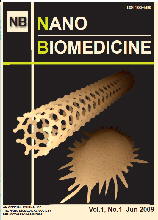Synopsis
The use of dental implants currently entails problems associated with lack of adhesion to the oral mucosa at the point of abutment, which differs from that of natural teeth. Usually, the experimental evaluation of adhesion between test implant materials and soft tissue requires animal experiments. In this study, to facilitate easier evaluation, adhesion experiments were performed using a three-dimensional (3D)
in vitro epidermal cell culture model. The implant materials examined were nano hydroxyapatite (nHAp) coated polyethylene terephthalate (PET), uncoated PET, zirconia, and titanium. The nHAp particles exhibited high cell adhesion, and nHAp coated PET exhibited high tissue-adhesion in the 3D epidermal cell culture
in vitro. Zirconia exhibited substantial tissue adhesion to the 3D epithelial tissue, but titanium exhibited little adhesion. This 3D
in vitro epidermal cell culture model could be used instead of animal experiments to facilitate easier evaluation of adhesion between tissue and materials, and it could be useful in screening tests for the development of tissue adhesive materials and processing conditions.
Key words: nano apatite, dental implant, three-dimensional cell culture, adhesion test
